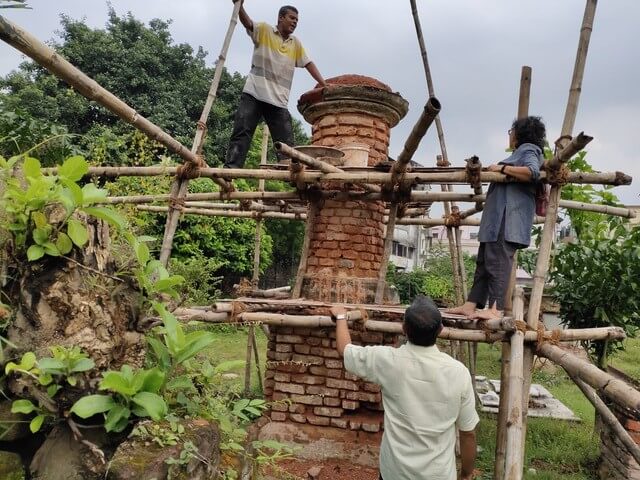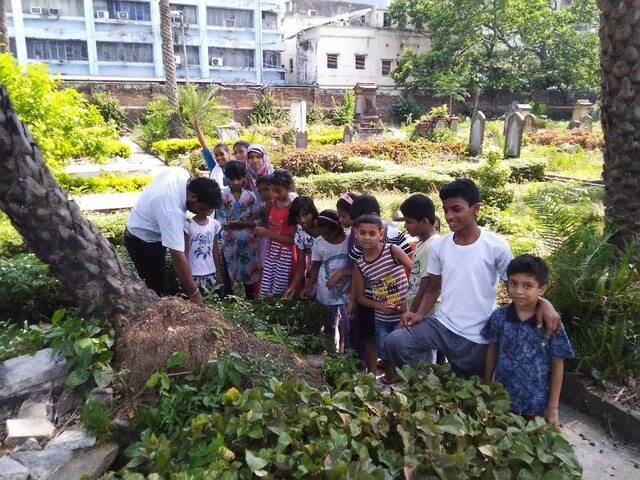The Scottish Cemetery was laid out in Calcutta (Kolkata) in 1820. It contains 1,600 headstones and monuments and 4,000 burials. Although it continued in use after Indian Independence it fell into disrepair in the 1970s. In 2008 the Kolkata Scottish Heritage Trust (KSHT) was established to restore the cemetery. KSHT has since cleared four acres of jungle, restored the gatehouse, graded and landscaped the entire site, assessed the condition of most of the monuments, developed skills training workshops, and opened a technical advice centre.
The project is supervised by a qualified conservation architect overseeing a team including landscape design, horticulture, archaeology, hydraulic engineering, urban design and community engagement. There are 20 people employed on the project in Kolkata. KSHT raises funds from private donors, charitable trusts and foundations, each year raising around £25,000-30,000 to maintain the project. KSHT receives no support from government agencies.
The cemetery is an important repository of memory containing thousands of detailed burial records. This data is providing a rich source for research into the growth and worldwide impact of the Scottish Diaspora in the nineteenth century.
The project also provides an important opportunity for Scottish conservation expertise to be made available for the care of cultural heritage in India, generally. KSHT arranges specialist courses in Scotland for the benefit of its Kolkata-based team. It has sponsored the establishment of a technical advice centre for traditional construction technologies in Kolkata, one of the first in India. Recently this has been transferred to the Centre for Environmental Planning and Technology (CEPT), India’s top school of architecture at Ahmedabad.
In response to the overwhelming social challenges faced by Kolkata, KSHT has drawn up an urban regeneration plan, carried out three detailed social surveys, and started a community engagement programme. Over 3,000 people have been identified living in the vicinity of the project, the majority existing in conditions below the official poverty line of $2 per day. There are over 270 families living in desperate poverty around the edge of the cemetery site, and of these 115 are now participating in the project.
Since the Indian government imposed a lockdown on 17th March to combat the spread of the coronavirus virus all activities associated with the cemetery project have been suspended. Rather than restoring monuments the Trustees have decided in the meantime to focus the Trust’s energy on supporting the local community and are now advancing funds to provide food parcels and necessities to needy families.


Charles Bruce
